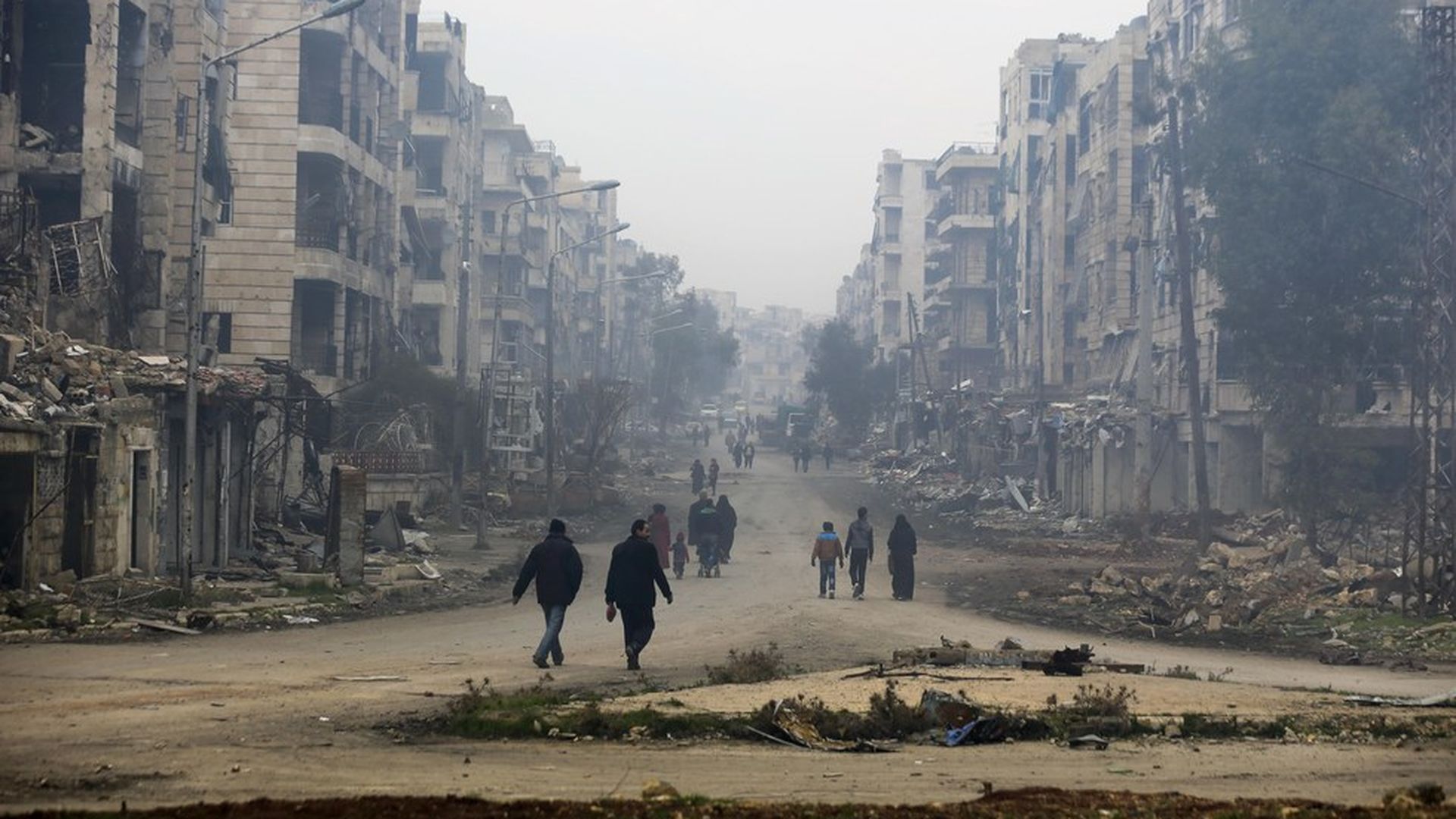Syria after ISIS: U.S. on 'collision course' with Iran and Russia
Add Axios as your preferred source to
see more of our stories on Google.

Hassan Ammar / AP
The U.S. is on a "collision course" with Iran and Russia in a key territory of Syria once the battle to root ISIS out of its de-facto capital, Raqqa, is complete, per Anne Barnard of the NY Times.
What we're watching: The competition to control Syrian territory post-ISIS. The province in question, Deir al-Zour, boasts oil reserves and could serve as a land bridge to connect Iran to Syria, and eventually neighboring Lebanon, Hezbollah's base. Russia just announced it will treat U.S. planes west of the Euphrates as targets, signaling it's ready to stand with the regime against the U.S. after weeks of encouraging both to avoid clashing.
- See Axios' Lazaro Gamio's map of the conflict over time here.
Why it matters: Uprooting ISIS amid the civil war could lead to a power vacuum, and if the U.S. goes on the offensive it risks a full on confrontation with Iran — and maybe Russia and the Syrian regime — and potentially risks sparking tensions with Iraq, Qatar, and Yemen.
The eastern region is already heating up:
- In the last few weeks the U.S. has had four direct confrontations with pro-Assad forces in eastern Syria.
- In all three instances decisions were made by commanders in the field, indicating a lack of overarching strategic direction from D.C., per Ilan Goldenberg: "We might end up in a war with Iran with no decision taken by Trump/Mattis/Tillerson/McMaster." Foreign Policy and Just Security describe the White House and the Pentagon as fighting over strategy, leading to a current deadlock.
- Iran and the U.S. are both bolstering forces in the area. Last Wednesday the U.S. announced it is sending a mobile missile launcher to eastern Syria, and Iran launched an attack against ISIS in Deir al-Zour over the weekend, the first time it has fired missiles into another country in three decades.
- The U.S. shot down a Syrian fighter jet this weekend, the first time since the start of the civil war the U.S. has engaged in air-to-air combat with Syrian forces (although in a different province).
- Boiling this down: These actions show an increasing willingness from both pro-regime and regime forces to engage in hostile acts despite U.S. warnings to stay away, and the administration's willingness to deliberately bomb pro-regime forces, breaking from usual behavior in the region.
The Pentagon told Axios "the Coalition is not seeking to claim land or conquer territory...does not seek to fight the Syrian regime, Russian or pro-regime forces...but is well prepared to defend itself from hostile threats."
